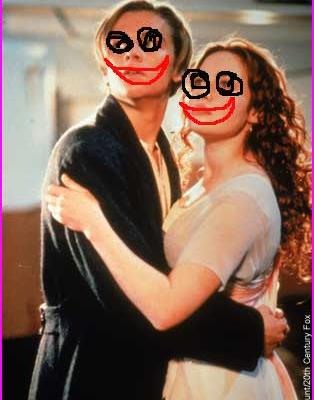The cinematic landscape often presents battle royales between films, igniting passionate debates among audiences. One such rivalry is exemplified in the clash between Christopher Nolan’s “The Dark Knight” and James Cameron’s “Titanic.” At first glance, these two titans of cinema might appear to occupy entirely disparate realms—one a gritty exploration of morality and heroism, the other a sweeping romantic tragedy set against the backdrop of historical disaster. However, a deeper analysis reveals a captivating intersection that captivates audiences and critics alike.
On one hand, “The Dark Knight” emerged as a cultural phenomenon that redefined the superhero genre. Its portrayal of Batman’s complex morality and the enigmatic Joker’s chaotic philosophy resonated with a generation disillusioned by traditional narratives. The film does not merely entertain; it provokes introspection on themes of justice versus chaos, and heroism versus villainy. This palpable tension has drawn viewers into its dark embrace, prompting discussions that linger long after the credits roll.
Conversely, “Titanic” epitomizes the grandeur of historical epics, intricately weaving a tale of love and loss amidst one of history’s most infamous maritime disasters. The film’s commercial success and emotional weight have secured its place in the annals of cinema. Yet, despite its monumental achievements, “Titanic” often garners criticism for its melodramatic elements, leading some to label it as overly sentimental. This dichotomy of viewer reception highlights the subjective nature of cinematic artistry.
But why does the stark juxtaposition of these two films ignite such fervent discussions? The fascination lies not merely in box office numbers or critical accolades, but in their respective reflections of societal values and zeitgeist. “The Dark Knight” resonates within a post-9/11 context, tapping into collective anxieties surrounding security and morality. Conversely, “Titanic” embodies early 21st-century nostalgia, showcasing a yearning for a romantic ideal amidst a rapidly changing world.
Interestingly, both films engage with the notion of tragedy, albeit through different lenses. The catastrophic sinking of the Titanic evokes a historical tragedy, underscoring human fallibility and the hubris of mankind. On the other hand, “The Dark Knight” presents a more psychological tragedy, probing the depths of the human psyche and questioning the very nature of good and evil. This thematic richness provides viewers with layers of meaning, inviting a spectrum of interpretations that can vary wildly from person to person.
Ultimately, the rivalry between “The Dark Knight” and “Titanic” transcends mere entertainment. It speaks to the vast tapestry of human emotion and the intricacies of storytelling. Both films, in their own right, compel us to confront our fears, desires, and moral quandaries. In this sense, while “The Dark Knight” may metaphorically proclaim, “Down with Titanic,” it simultaneously acknowledges the enduring impact that both films have had on the cinematic narrative, contributing to an evolving dialogue in the world of film.
